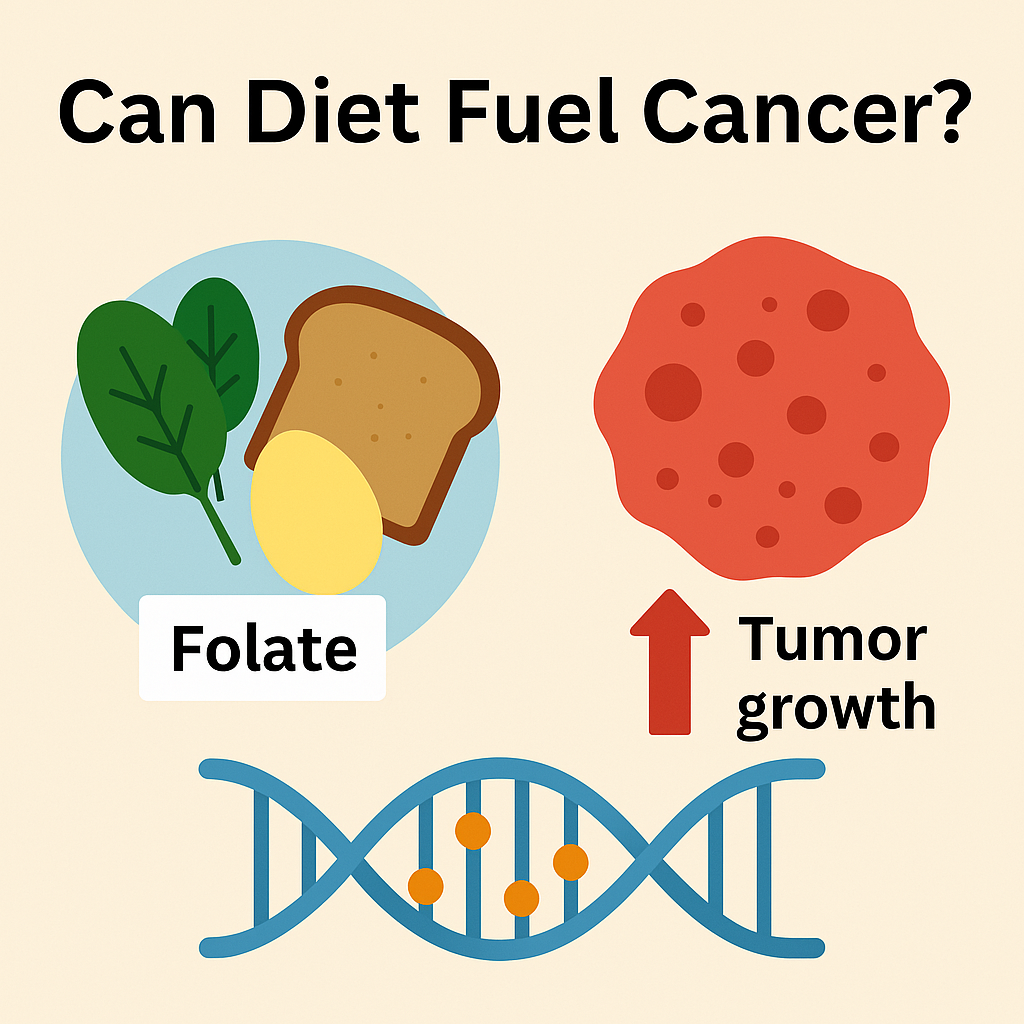The role of diet and environment in cancer development has long been debated — especially when it comes to colon cancer. While previous studies suggest that what we eat can influence cancer risk, the exact how has remained unclear.

Now, new research from Baylor College of Medicine, published in Cancer Research Communications, sheds light on a possible mechanism connecting diet to cancer development. The study reveals how dietary folate — a form of vitamin B found in many fortified foods — may actually increase the risk of colon cancer in certain contexts.
🔬 What the Study Found
Using an animal model, researchers discovered that diets high in folate led to:
-
Shorter overall survival
-
More tumors
-
Larger, more aggressive tumors
Compared to animals fed a non-supplemented diet, those consuming extra folate developed tumors that were also more biologically active and inflamed. The researchers noticed an increase in tumor-associated macrophages, immune cells that are often linked with immune suppression and worse outcomes in human colon cancer cases.
🧬 The Epigenetic Connection
What’s especially interesting is how folate seems to influence gene activity — not by changing the genes themselves, but by altering how they're "read." This process is called epigenetics.
“Epigenetics acts like bookmarks for our DNA,” explains Dr. Lanlan Shen, senior author of the study. “It helps determine which genes are turned on or off, and folate plays a direct role in this process by contributing to DNA methylation, one of the key mechanisms.”
In the study, researchers found significantly higher methylation of p16, a gene linked to colon cancer, in animals fed a high-folate diet — a possible clue as to how folate speeds up cancer progression.
⚠️ Why This Matters
Folate is often considered beneficial — it's essential for cell growth and is included in many prenatal vitamins and fortified foods. But these findings highlight a potential double-edged sword, particularly in the context of cancer risk and long-term, high-level intake.
With early-onset colon cancer on the rise, especially in younger adults across the U.S., the research team urges caution and calls for closer monitoring of the long-term effects of folate fortification in our food supply.
💡 What’s Next?
This study opens the door to further exploration of how environmental factors like diet can directly influence cancer risk. It also underlines the importance of personalized nutrition and understanding the impact of dietary supplements on individual health.
As scientists continue to decode the complex relationship between food, genetics, and cancer, one thing is clear: what we eat can shape much more than just our waistlines.






